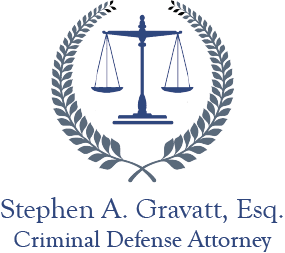THEFT NJ BY DECEPTION—N.J.S.A. 2C:20-4
ILLUSTRATIVE EXAMPLE:
You are a diesel truck mechanic and you run a mobile truck repair service. Business has been really slow. You know that you can obtain payment from trucking companies using COMCHECK and that you can convert those drafts to cash by presenting that instrument to a check cashing business. You cook up a scheme to report to numerous trucking companies that you have performed emergency repair services on their (supposedly) broken down tractor trailers, when of course you have not. You call Hanjin lines with a bogus repair bill and they send you an electronic draft in the amount of $1,100.00 which you cash. It worked! Have you just committed a serious criminal offense?
THEFT BY DECEPTION
“A person is guilty of theft if he purposely obtains property of another by deception. A
person deceives if he purposely:
a. Creates or reinforces a false impression, including false impression as to law, value, intention or other state of mind, and including, but not limited to, a false
impression that the person is soliciting or collecting funds for a charitable purpose;
but deception as to a person’s intention to perform a promise shall not be inferred from the fact alone that he did not subsequently perform the promise;
b. Prevents another from acquiring information which would affect his judgment of a
transaction; or
c. Fails to correct a false impression which the deceiver previously created or
reinforced, or which he deceiver knows to be influencing another to whom he stands in a fiduciary or confidential relationship.
The term “deceive” does not, however, include falsity as to matters having no
pecuniary significance, or puffing or exaggeration by statements unlikely to deceive
ordinary persons in the group addressed.”
GRADING OF THEFT OFFENSES—N.J.S.A. 2C:20-2(b)
b. Grading of theft offenses.
(1) Theft constitutes an offense of the second degree if:
(a) The amount involved is $75,000.00 or more;
(b) The property is taken by extortion;
(c) The property taken is a controlled dangerous substance or controlled substance analog as defined by N.J.S.2C:35-2 and the quantity is in excess of one kilogram;
(d) The property stolen is a person’s benefits under federal or State law, or from any other source, which the Department of Human Services or an agency acting on its behalf has budgeted for the person’s health care and the amount involved is $75,000.00 or more; or
(e) The property stolen is human remains or any part thereof.
(2) Theft constitutes a crime of the third degree if:
(a) The amount involved exceeds $500.00 but is less than $75,000.00;
(b) The property stolen is a firearm, motor vehicle, vessel, boat, horse, domestic companion animal or airplane;
(c) The property stolen is a controlled dangerous substance or controlled
substance analog as defined in N.J.S. 2C:35-2 and the amount involved is less than $75,000.00 or is undetermined and the quantity is one kilogram or less; or
(d) It is from the person of the victim; or
(e) It is in breach of an obligation by a person in his capacity as a fiduciary; or
(f) It is by threat not amounting to extortion; or
(g) It is of a public record, writing or instrument kept, filed or deposited according to law with or in the keeping of ant public office or public servant;or
(h) The property stolen is a person’s benefits under federal or State law, or from any other source, which the Department of Human Services or an agency acting on its behalf has budgeted for the person’s health and the amount involved is less than $75,000.00; or
(i) The property stolen is any real or personal property related to, necessary for, or derived from research, regardless of value, including, but not limited to, any sample, specimens or component thereof, research subject, including any warm-blooded or cold-blooded animals being used for research or intended for use in research, supplies, records, data or test results, prototypes or equipment, as well as any proprietary information or other type of information related to research; or
(j) The property stolen is a New Jersey prescription blank as referred to in R.S.45:14-14; or
(k) The property stolen consists of an access device or a defaced access device.
(3) Theft constitutes a crime of the fourth degree if the amount involved is at
least $200.00 but does not exceed $500.00. If the amount involved was less
than $200.00 the offense constitutes a disorderly persons offense.
(4) The amount involved in a theft shall be determined by the trier of fact. The
amount shall include, but shall not be limited to, the amount of any State tax avoided, evaded or otherwise unpaid, improperly retained or disposed of. Amounts involved in thefts committed pursuant to one scheme or course of conduct, whether from the same person or several persons, may be aggregated in determining the grade of the offense.
b. Claim of right. It is an affirmative defense to prosecution for theft that the actor:
(1) Was unaware that the property or service was that of another;
(2) Acted under an honest claim of right to the property or service involved or
that he had a right to acquire or dispose of it as he did;
(3) Took property exposed for sale, intending to purchase or pay for it promptly,
or reasonably believing that the owner, if present, would have consented.
d. Theft from spouse. It is no defense that the theft or computer criminal activity was
from or committed against the actor’s spouse, except that misappropriation of
household and personal effects, or other property normally accessible to both
spouses, is theft or computer criminal activity only if it occurs after the parties
have ceased living together.”
The answer to the question is YES. State v. James DeRose, A-5714—5T55714-05T5 (App. Div. 2007). This would be a third degree offense, punishable by the imposition of a monetary fine up to $15,000.00, plus jail time for a minimum of three (3) years and a maximum of five (5) years, presumptive four (4) years. N.J.S.A. 2C:43-3(b).
These cases can be extremely serious involving the imposition of jail time, hefty fines and a criminal record. If you are charged with any theft charge you need to retain the services of a skilled and experienced attorney immediately to obtain a downgrade of the charges or an acquittal. Contact me at………


